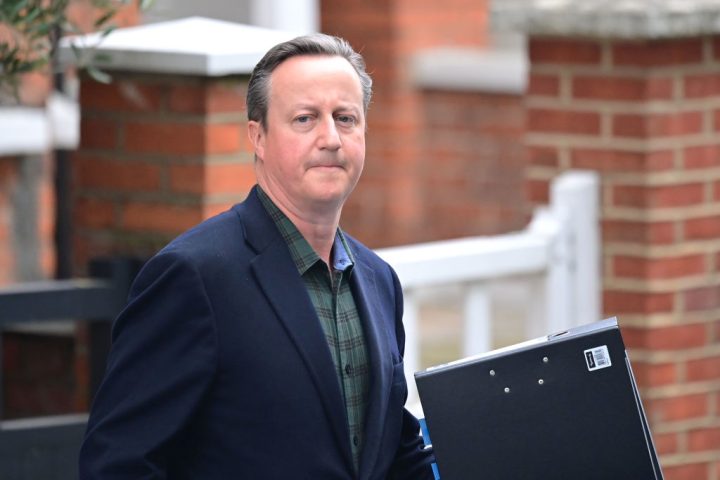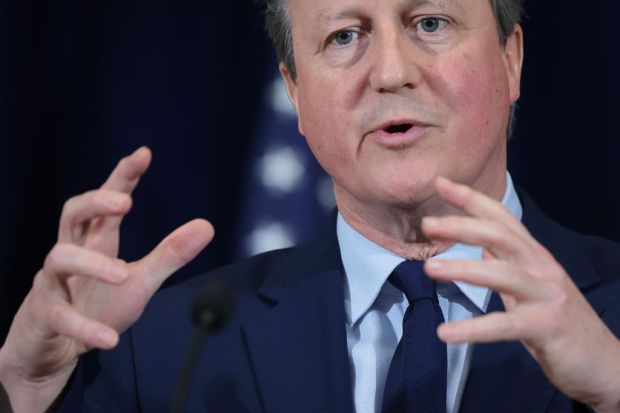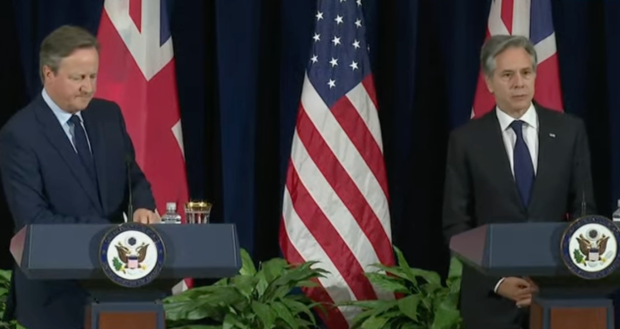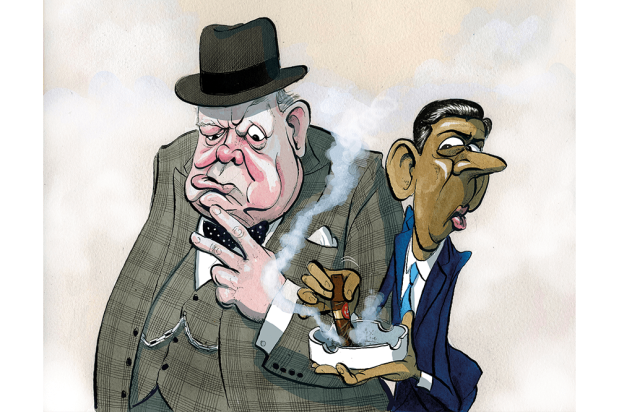David Cameron is back. This will make some people unhappy, because they dislike the man. Common reasons for disliking Dave include Brexit and austerity. But there’s also the Greensill lobbying and just the general, all-pervading shiny-faced smugness of a man who, one suspects, never really gave a toss about any of it and was just playing at politics to show how clever he is.
You might infer from the words above that I am one of those who dislike Cameron. I certainly have reasons to do so, and reasons that are a little more personal than the ones I’ve listed above. My feelings about David Cameron have informed a great many columns that I’ve written about the man in the years since he left No. 10 – columns in which I have suggested that he is a shallow chancer whose departure from high office and conduct since have been shameful in the extreme.
Cameron is coming back not because he’s good person or a bad one but because he’s human and humans are complicated
I’ll write about my own reasons for Dave-spite one day, but not today. For now, I’ll stick to my thoughts on Cameron’s return to government as Foreign Secretary, thoughts given in my role as a semi-pro Cameron-hater.
Speaking as someone with very good reasons to dislike David Cameron, I’m glad he’s back. I think it’s a good thing for politics and government and very much to his credit.
First, I think former prime ministers staying involved in politics is a positive thing. Tony Blair got a lot of things right, but flying out of the Commons as soon as he left Downing Street wasn’t one of them. It helped entrench the idea that former premiers couldn’t contribute in parliament after No. 10. It also belittled the importance of parliament itself, as if there was no point in being ‘just’ an MP.
(I think parliament and Britain would also be better off if Gordon Brown had stayed in the Commons, by the way. And I also had significant personal differences with him, including the time he chased me into a toilet to shout at me for accurately quoting in a newspaper something he’d said on TV. But again, that’s a tale for the memoirs.)
Another reason to be glad Cameron is back: he’s not without his talents. He’s a serious person – or at least, he’s able to do such a good impersonation of a serious person that it doesn’t always matter if his inner thoughts and motives are shallow. Politics is often about impressions and seeming, after all. Putting Britain’s foreign policy in the hands of someone who looks like a serious and grown-up leader should be a positive for a country that badly needs to persuade the world that it’s still serious.
Not everything Cameron did in office or afterwards was bad. I wrote here a while ago about his record on gay marriage and his contributions on dementia. In both areas, he has done good things, which should be recorded on the ledger alongside his more often-discussed mistakes and failures. I hope he uses the undoubted skills and abilities he deployed on those issues in his new ministerial role.
More reasons to welcome him back: accountability. In the Lords and in government, Cameron will have to answer more of the questions he’s ducked in recent years about his record and maybe even his finances. Scrutiny is good, and all credit to him for doing something that will mean he gets more of it.
My final reason for welcoming Dave back is complexity. The world is a complicated place full of complicated people, but too often our contemporary, technologically-mediated conversations try to overwrite that complexity with stark binaries.
Too many people divide the world – and politics in particular – into lists of good people and bad people, the right side and the wrong one. Lots of people on Twitter and other channels today will be taking this vibes-based view of Cameron: they’re unhappy about Brexit so he is a bad person, everything he did was bad and his return must be bad. And so on.
I think such thinking is bad for all of us, a poor way to discuss politics and politicians. It means we judge leaders less on their (objective and observable) actions than their (subjective and imputed) motives.
Discourse around Suella Braverman illustrates this point too. Lots of commentators and participants made the error of judging her according to the motives they imputed to her rather than her words, action and record. For what it’s worth, I strongly disliked many of the things she said and did, but I assume that she did them in good faith, believing they would make the world better, not worse. We should give public figures the benefit of this doubt – especially when we disagree with them.
So it should be with Foreign Secretary David Cameron. Is he coming back because he wants to try to make sure history doesn’t record him as an utter failure but instead as a man of duty and service? Is he just trying to fill the void of an empty and unsatisfying post-premiership previous filled up with spivvy money-making and mid-week tennis? Or is he really just a noble public servant who wants to serve?
I have no idea: I have no window into his soul and do not want one. I assume his motives are mixed, with vanity, duty and countless other factors playing a part – just as they do for all of us. (Disclosure: I write columns for all sorts of reasons – because I enjoy it and because I get paid and because journalism is important and because I like being part of political conversations and because…)
Cameron is ultimately coming back not because he’s good person or a bad one but because he’s a human being and humans are complicated. I might have reasons to dislike him but that doesn’t mean he’s entirely bad or wrong. He might do some good as foreign secretary, or he might disgrace himself further. His story isn’t over yet and – even though the past should be neither forgotten nor forgiven – that is to his credit. Welcome back, Dave.
Got something to add? Join the discussion and comment below.
Get 10 issues for just $10
Subscribe to The Spectator Australia today for the next 10 magazine issues, plus full online access, for just $10.




















Comments
Don't miss out
Join the conversation with other Spectator Australia readers. Subscribe to leave a comment.
SUBSCRIBEAlready a subscriber? Log in